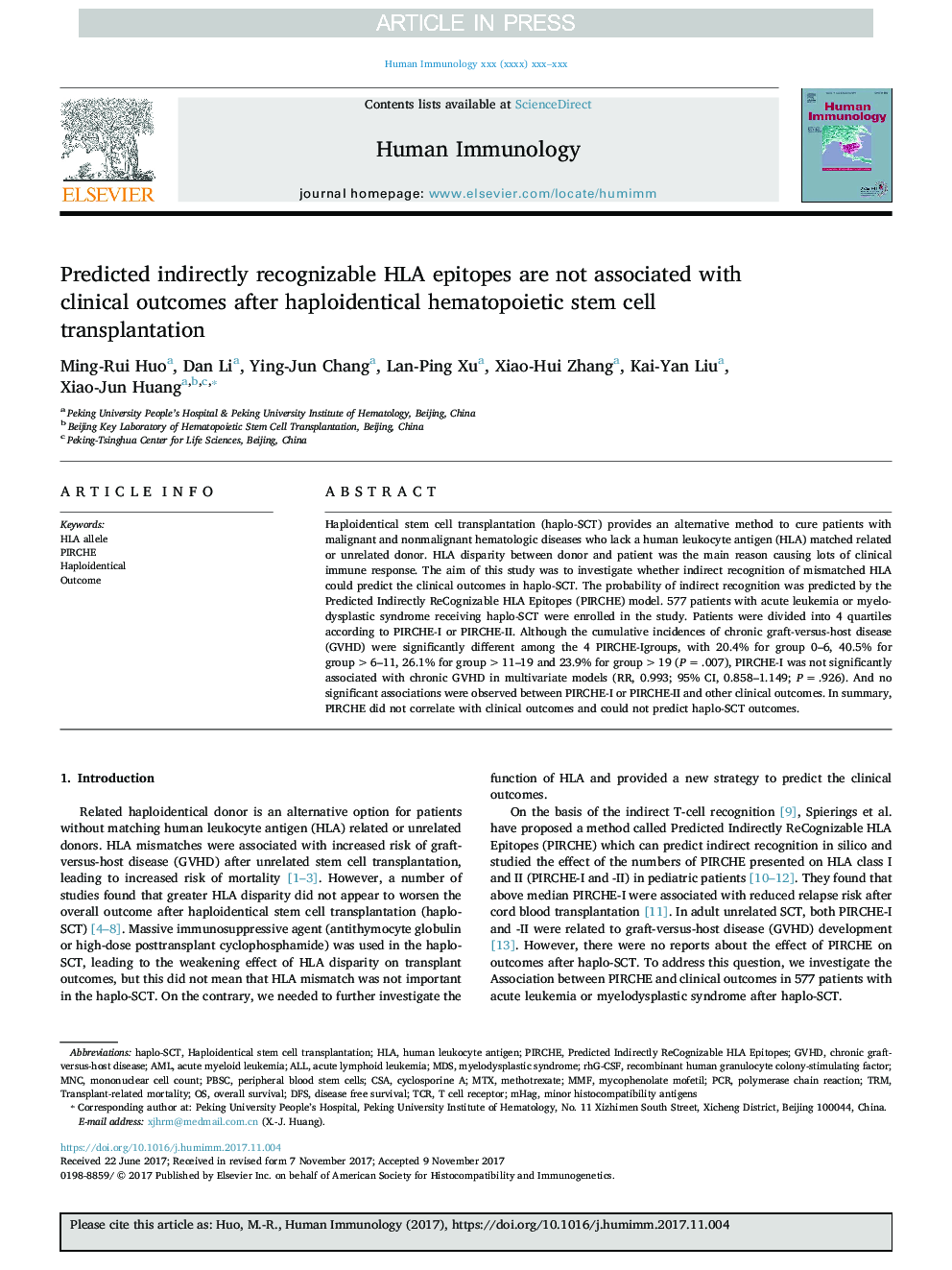| Article ID | Journal | Published Year | Pages | File Type |
|---|---|---|---|---|
| 8737683 | Human Immunology | 2018 | 5 Pages |
Abstract
Haploidentical stem cell transplantation (haplo-SCT) provides an alternative method to cure patients with malignant and nonmalignant hematologic diseases who lack a human leukocyte antigen (HLA) matched related or unrelated donor. HLA disparity between donor and patient was the main reason causing lots of clinical immune response. The aim of this study was to investigate whether indirect recognition of mismatched HLA could predict the clinical outcomes in haplo-SCT. The probability of indirect recognition was predicted by the Predicted Indirectly ReCognizable HLA Epitopes (PIRCHE) model. 577 patients with acute leukemia or myelodysplastic syndrome receiving haplo-SCT were enrolled in the study. Patients were divided into 4 quartiles according to PIRCHE-â
or PIRCHE-â
¡. Although the cumulative incidences of chronic graft-versus-host disease (GVHD) were significantly different among the 4 PIRCHE-â
groups, with 20.4% for group 0-6, 40.5% for group >6-11, 26.1% for group >11-19 and 23.9% for group >19 (Pâ¯=â¯.007), PIRCHE-â
was not significantly associated with chronic GVHD in multivariate models (RR, 0.993; 95% CI, 0.858-1.149; Pâ¯=â¯.926). And no significant associations were observed between PIRCHE-â
or PIRCHE-â
¡ and other clinical outcomes. In summary, PIRCHE did not correlate with clinical outcomes and could not predict haplo-SCT outcomes.
Keywords
rhG-CSFmHagAMLGvHDPIRCHEPBSCMTXMNCMMFDFSMDSTCrTRMHuman leukocyte antigenMinor histocompatibility antigensHLACSADisease free survivaloverall survivalChronic graft-versus-host diseasePeripheral blood stem cellsmyelodysplastic syndromeCyclosporine ARecombinant human granulocyte colony-stimulating factoracute lymphoid leukemiaacute myeloid leukemiamycophenolate mofetilHaploidenticalMethotrexateTransplant-related mortalityOutcomeALLpolymerase chain reactionPCRHaploidentical stem cell transplantationT cell receptor
Related Topics
Life Sciences
Immunology and Microbiology
Immunology
Authors
Ming-Rui Huo, Dan Li, Ying-Jun Chang, Lan-Ping Xu, Xiao-Hui Zhang, Kai-Yan Liu, Xiao-Jun Huang,
